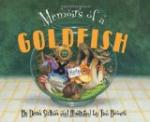And they are just as fond of her. Indeed it is their loyalty to this old Irish nurse that gives me faith that they are not the cold propositions they sometimes seem to be. For once when, after much careless delay, a fragmentary message came to us that she was ill and in a hospital my two daughters, who were just starting for a ball, flew to her bedside, sat with her all through the night and never left her until she was out of danger.
“They brought me back—my darlin’s!” she whispered to us when later we called to see how she was getting on; and my wife looked at me across the rumpled cot and her lips trembled. I knew what was in her mind. Would her daughters have rushed to her with the same forgetfulness of self as to this prematurely gray and wrinkled woman whose shrunken form lay between us?
Poor old Jane! Alone in an alien land, giving your life and your love to the children of others, only to have them torn from your arms just as the tiny fingers have entwined themselves like tendrils round your heart! We have tossed you the choicest blessings of our lives and shouldered you with the heavy responsibilities that should rightfully have been our load. Your cup has run over with both joy and sorrow but you have drunk of the cup, while we are still thirsty! Our hearts are dry, while yours is green—nourished with the love that should belong to us. Poor old Jane? Lucky old Jane! Anyhow God bless you!
CHAPTER IV
MY MIND
I come of a family that prides itself on its culture and intellectuality. We have always been professional people, for my grandfather was, as I have said, a clergyman; and among my uncles are a lawyer, a physician and a professor. My sisters, also, have intermarried with professional men. I received a fairly good primary and secondary education, and graduated from my university with honors—whatever that may have meant. I was distinctly of a literary turn of mind; and during my four years of study I imbibed some slight information concerning the English classics, music, modern history and metaphysics. I could talk quite wisely about Chaucer, Beaumont and Fletcher, Thomas Love Peacock and Ann Radcliffe, or Kant, Fichte and Schopenhauer.
I can see now that my smattering of culture was neither deep nor broad. I acquired no definite knowledge of underlying principles, of general history, of economics, of languages, of mathematics, of physics or of chemistry. To biology and its allies I paid scarcely any attention at all, except to take a few snap courses. I really secured only a surface acquaintance with polite English literature, mostly very modern. The main part of my time I spent reading Stevenson and Kipling. I did well in English composition and I pronounced my words neatly and in a refined manner. At the end of my course, when twenty-two years old, I was handed an imitation-parchment degree and proclaimed by the president of the college as belonging to the Brotherhood of Educated Men.




